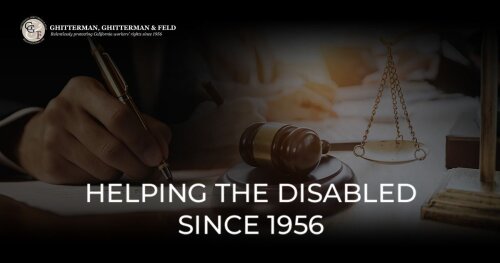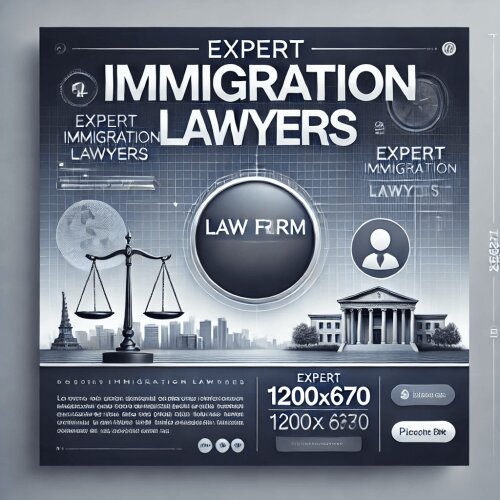Best Restructuring & Insolvency Lawyers in United States
Share your needs with us, get contacted by law firms.
Free. Takes 2 min.
Or refine your search by selecting a city:
List of the best lawyers in United States
About Restructuring & Insolvency Law in United States
Restructuring and insolvency law in the United States focuses on assisting businesses and individuals who are unable to meet their financial obligations. It involves a broad set of legal tools and processes designed to reorganize debt, liquidate assets, and provide relief from creditors. The aim is to maximize asset value, protect creditors’ and debtors’ rights, and provide a framework for orderly resolution of financial distress. Most notably, the United States Bankruptcy Code offers various forms of relief under different chapters, such as Chapters 7, 11, and 13, each tailored for different needs and circumstances.
Why You May Need a Lawyer
Legal challenges in restructuring and insolvency cases can be complex and emotionally draining. Here are common situations where legal advice is essential:
- You or your business cannot pay debts as they come due.
- Creditors are threatening lawsuits, foreclosure, or repossession.
- Debt restructuring or renegotiation with lenders is necessary.
- You are facing potential liquidation of assets or business closure.
- You need guidance on bankruptcy filings and eligibility.
- You want to protect personal assets during business financial distress.
- You are a creditor seeking to enforce your rights or recover debts during another party’s insolvency.
- Understanding the impact of insolvency on contracts and ongoing business operations.
An experienced restructuring and insolvency lawyer can help you understand your options, protect your interests, and navigate the court process efficiently.
Local Laws Overview
United States restructuring and insolvency proceedings are governed primarily by federal law, particularly the U.S. Bankruptcy Code. However, state laws also come into play, especially regarding property rights and the conduct of creditors. Key aspects include:
- Chapter 7 Bankruptcy - Liquidation of assets for individuals and businesses unable to pay debts. Most debts are discharged, but some may remain, like child support or certain taxes.
- Chapter 11 Bankruptcy - Primarily used by businesses to restructure debts while continuing operations. Also available to individuals with substantial debts and assets.
- Chapter 13 Bankruptcy - Designed for individuals with regular income to reorganize and pay debts in installments, typically over three to five years.
- Automatic Stay - Filing for bankruptcy generally halts all collection actions, including lawsuits and creditor calls, giving debtors breathing room.
- Creditors’ Rights - Creditors have specific procedures to follow to recover debts in insolvency cases, including filing proofs of claim and participating in court proceedings.
- Exemptions and Asset Protection - Each state provides its own exemptions, determining what assets debtors can keep through bankruptcy.
- Fraud and Preferential Transfers - The law addresses improper asset transfers before insolvency to ensure fair treatment of creditors.
Frequently Asked Questions
What is the difference between bankruptcy and insolvency?
Insolvency is a financial state where a person or business cannot pay their debts as they become due. Bankruptcy is the legal process that may be used to resolve insolvency, either by reorganizing debts or liquidating assets.
What are the main types of bankruptcy for individuals and businesses?
Individuals commonly file under Chapter 7 (liquidation) or Chapter 13 (debt repayment plan). Businesses usually use Chapter 7 (liquidation) or Chapter 11 (reorganization).
How does the automatic stay work?
The automatic stay is a legal provision that immediately halts most collection activities against the debtor as soon as a bankruptcy petition is filed. It gives debtors temporary relief from creditors.
Will filing for bankruptcy remove all my debts?
Not all debts can be discharged in bankruptcy. Obligations such as recent taxes, alimony, child support, and student loans are generally not dischargeable.
Can I keep my home and car if I file for bankruptcy?
Whether you can keep your home and car depends on the available exemptions in your state, the type of bankruptcy filed, and your ability to continue making payments on secured loans.
What happens to my credit after bankruptcy?
Bankruptcy will negatively impact your credit score and can stay on your credit report for seven to ten years. However, many people begin rebuilding credit soon after discharge.
Do I have to go to court if I file for bankruptcy?
Typically, you must attend a meeting of creditors (known as a 341 meeting), but full court appearances are rare for most personal bankruptcies. Business cases, especially Chapter 11, may require court involvement.
Can creditors contact me after I file for bankruptcy?
Once a bankruptcy is filed, creditors are generally prohibited from contacting you or pursuing collection actions due to the automatic stay.
How long does the bankruptcy process take?
Chapter 7 cases typically take three to six months. Chapter 13 plans last three to five years. Chapter 11 duration varies widely based on the complexity of the case.
Do I need a lawyer to file for bankruptcy?
While it is possible to file without a lawyer, the process is complex and mistakes can have serious consequences. A lawyer ensures your case is handled correctly and your rights are protected.
Additional Resources
Several organizations and agencies provide guidance and support in restructuring and insolvency matters:
- United States Courts - Bankruptcy: The official source for bankruptcy forms, information, and guidance on procedures.
- American Bankruptcy Institute (ABI): Offers research, education, and networking resources for those dealing with insolvency.
- National Foundation for Credit Counseling (NFCC): Provides credit counseling and debt management services for individuals.
- Small Business Administration (SBA): Advises small businesses on financial management and turnaround strategies.
- State Bar Associations: Most state bar associations offer lawyer referral services and consumer guides on bankruptcy law.
Next Steps
If you are facing financial distress or are unsure about your legal options in restructuring or insolvency, consider the following steps:
- Gather financial documents such as income statements, lists of assets and liabilities, and recent tax returns.
- Assess your situation carefully - are you seeking to reorganize, settle debts, or prepare for possible liquidation?
- Consult a qualified restructuring and insolvency attorney who can review your circumstances and outline your legal options.
- If you are a business owner, involve key stakeholders early and communicate openly about the challenges.
- Be proactive - early legal advice can increase the range of available solutions and reduce overall stress.
Working with a legal professional helps you make informed decisions, avoid unintended consequences, and gives you the best chance for financial recovery.
Lawzana helps you find the best lawyers and law firms in United States through a curated and pre-screened list of qualified legal professionals. Our platform offers rankings and detailed profiles of attorneys and law firms, allowing you to compare based on practice areas, including Restructuring & Insolvency, experience, and client feedback.
Each profile includes a description of the firm's areas of practice, client reviews, team members and partners, year of establishment, spoken languages, office locations, contact information, social media presence, and any published articles or resources. Most firms on our platform speak English and are experienced in both local and international legal matters.
Get a quote from top-rated law firms in United States — quickly, securely, and without unnecessary hassle.
Disclaimer:
The information provided on this page is for general informational purposes only and does not constitute legal advice. While we strive to ensure the accuracy and relevance of the content, legal information may change over time, and interpretations of the law can vary. You should always consult with a qualified legal professional for advice specific to your situation.
We disclaim all liability for actions taken or not taken based on the content of this page. If you believe any information is incorrect or outdated, please contact us, and we will review and update it where appropriate.
Browse restructuring & insolvency law firms by state in United States
Refine your search by selecting a state.

















